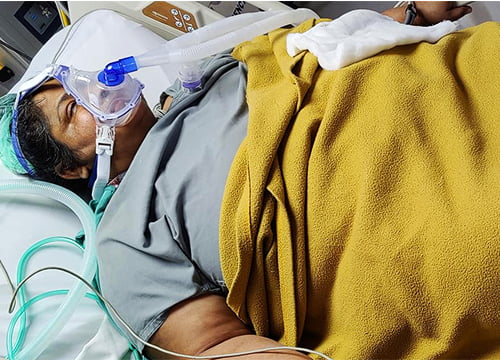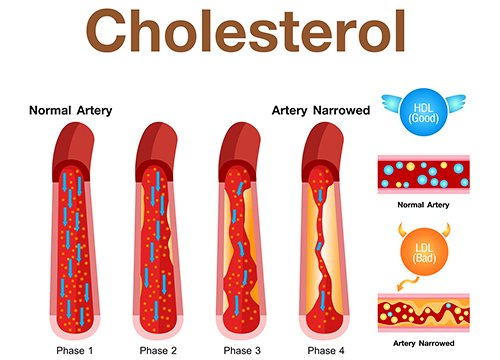Obesity is a chronic disease in which excess body fat has accumulated to an extent that it may have a negative effect on health.
Obesity Surgery
OBESITY SURGERY
What is obesity and its risk factors?
Morbid obesity has reached epidemic proportions. Severely obese people have a great difficulty in losing weight. Multiple attempts at losing weight through dietary restriction, exercise and medicines only lead to frustration. In cases of severe obesity, diet, exercise and medicines provide only short-term weight loss and fail to achieve any meaningful weight loss over a long period of time. Most persons regain weight and become more obese in short time.
Obesity is measured by a parameter called Body Mass Index (BMI), a measurement obtained by dividing a person’s weight in kilograms by the square of the person’s height in meters.
If your BMI is
- between 25 and 29, you would be considered overweight
- between 30 and 40, you would be considered obese
- over 40, you would be considered very obese
- over 50, you would be considered super obese

Cause/Risk factors for obesity
Obesity usually results from a combination of causes and contributing factors, including
Genetics
Your genes may affect the amount of body fat you store, and where that fat is distributed. Genetics may also play a role in how efficiently your body converts food into energy and how your body burns calories during exercise.
Family lifestyle
Obesity tends to run in families. If one or both of your parents are obese, your risk of being obese is increased. That’s not just because of genetics. Family members tend to share similar eating and activity habits.
Inactivity
With a sedentary lifestyle, you can easily take in more calories every day than you burn through exercise and routine daily activities.
Unhealthy diet
A diet that’s high in calories, lacking in fruits and vegetables, full of fast food, and laden with high-calorie beverages and oversized portions contributes to weight gain.
Risks associated with obesity
Obesity is a major health crisis in our country. There are several obesity related health conditions that are associated with obesity. These conditions often lead to a decreased quality of health and life of those affected.

Diabetes
Uncontrolled diabetes leads to harmful effects on your kidney (Diabetic nephropathy), harmful effects on your eyesight (Diabetic retinopathy), harmful effects on your heart (Heart attacks) cardiac disease and gangrene on limbs (peripheral vascular disease) and neuropathy.

Sleep apnea
Sleep apnea is a condition characterized by episodes of stopped breathing during sleep. sleep apnea is characterised by day time sleepiness, sleepless nights, snoring, respiratory distress on exertion and need for CPAP.

High cholesterol
Lipid disorders are when you have excess fatty substances in your blood. These substances include cholesterol and triglycerides. Having a lipid disorder makes you more likely to develop arteriosclerosis and heart disease.

Psychological depression
Being obese and having low self-esteem of your personal appearance leads to depression may be described as feeling sad, blue, unhappy, miserable, or down in the dumps.

Cancer
BMI more than 40 (severe obesity) had higher death rates from cancer as compared to normal-weight men and women. Some of the common cancers being oesophagus, Colon, Rectum, Liver, Pancreas, Gall bladder and Kidney cancers etc.

High blood pressure
Obesity leads to high blood pressure, you are hypertensive when your blood pressure frequently goes over 140/90 mm Hg.

Heartburn
Heartburn or gastroesophageal reflux disease is a painful burning sensation in the esophagus, just below the breastbone.

Osteoarthritis
Osteoarthritis is a chronic disease causing, deterioration of the joint cartilage (the softer parts of bones which cushion their connections to each other) and the formation of new bone (bone spurs) at the margins of the joints. Long term obesity can lead to need of knee transplants which can be avoided with weightloss surgery.

Stroke
A stroke occurs when a blood vessel (artery) that supplies blood to the brain bursts or is blocked by a blood clot. Within minutes, the nerve cells in that area of the brain are damaged, and they may die within a few hours. As a result, the part of the body controlled by the damaged section of the brain cannot function properly.
What is Bariatric Surgery?
Bariatric Surgery is the standard and safe treatment of morbid or severe obesity. It not only leads to significant and durable weight loss but also in improvement/resolution of diseases associated with obesity.
First one must understand that the surgery does not involve any removal of fat. It is not same as liposuction. There are three popular operations for treating obesity. One of the most popular operations, called sleeve gastrectomy, involves cutting out a major portion of stomach to reduce its size by 80-90%. Moreover, it leads to decrease in Ghrelin which is a hormone that causes increased appetite. So, the net effect is that after surgery, the person feels less hungry along with feeling of satiety with a small amount of food.
The operations are carried out laparoscopically through small cuts. Typically, there are three 1 cm cuts and two 5 mm cuts on the skin. After surgery, the patient is able to walk in the evening and is fit for discharge in about 3 days. The patients are on liquid diet initially for 7-10 days after surgery and gradually the diet is changed to soft or semi-solid for another 2 weeks.
The weight loss is gradual (which is desirable and does not leads to weakness or malnutrition). On an average a person loses 4-5 Kg every month after surgery initially. Most persons lose an average of 40-45 Kg over one year.
Weight loss is not the only measure of the success of surgery. Bariatric surgery has a positive impact on the associated diseases. The impact on diabetes is most dramatic. Majority of patients do not require any medicines for diabetes soon after surgery. Infact, if they are given the anti-diabetic medication, the blood sugars can become very low. Such impressive effect on diabetes so soon after surgery has led to growing enthusiasm for possible cure of diabetes using surgery even in people who are moderately obese (BMI 30-35). Other diseases like high blood pressure, asthma, joint disease, sleep apnea, depression etc also show a significant improvement over a longer period of time.
Bariatric operations cause substantial weight loss, which leads to marked improvement in quality of life. People who were not able to walk even 500 meters before surgery are able to walk 5-6 km easily. One of the myths is that surgery leads to weakness. Nothing could be farther from truth. The patients who have undergone bariatric surgery are more active, have a better sex life, require less medical care.
Candidates for Bariatric surgery?
The selection is based on calculation of body mass index or BMI. Body mass index or BMI is defined as weight in Kg / height in meters square. For example BMI of a 100 kg man who is 175 cm tall is 32.6. So one should calculate one’s own BMI based on height and weight.
Those with BMI > 40 (with or without any diseases) or BMI >35 with one or more of associated diseases especially diabetes and sleep apnea should consult a bariatric surgeon. However, in India patients with BMI > 37.5 (with or without any diseases) or BMI >32.5 with one or more of associated diseases should consult your doctor for weightloss surgery.
Popularity of bariatric surgery can be gauged from the fact that more than 1,40,000 bariatric operations are carried out in United States every year and patients have successful and sustained weightloss.
BARIATRIC SURGERY POST-OP CARE
What To Expect After Weight Loss Surgery?
We guide you through your post-operative recovery and weightloss journey throughout. We conduct regular Bariatric Support Group meetings, also our team coordinators and lead Bariatric Surgeons and Nutritionist are always available to help you out. You become part of our family. Right from Pre-operative counsellings to Bariatric surgery to a lifetime of support and assistance, you’re a member of our Family.
There are several phases of weight management. Each step has its objectives and specific recommendations. It is best to focus on each stage as you progress into weight stabilization.
The post-operative nutrition care has three distinct phases:
- Recovery (surgery day – 40 days post-op)
- Extreme weight loss (40 days to 9 months)
- Weight stabilization (9 months and life after that)
In each phase, we provide you with food and supplement criteria as well as lifestyle and dietary behaviour recommendations.
- The six-week recovery process is four different diet stages. This stage consists of preventing complications, helping meet nutrient needs, diet progression, and adequate recovery.
- Starting with recovery and continuing into the first nine months, it is critical to meet fluid and nutritional needs through nutrient-dense and minimally processed foods. Nutrients provide energy, prevent muscle breakdown, repair aggravated organs, facilitate the elimination of stored toxins, and modulate metabolism. The result is fat loss. Thus, at this stage, we emphasize the need to provide essential nutrients through food and supplements to restore health.
- At nine months from surgery, for continuing weight loss (fat loss) and weight stabilization, we will make an emphasis on food and supplement choices, physical activity, and mindful eating. During the first year after weight loss or metabolic surgery, many obesity-related comorbid conditions may resolve or improve, and most of the weight will come off. This stage’s objective is to use the operation as a tool to make lasting dietary changes that will improve the quality of life.
What are the side effects or complications after surgery?
Like all surgical procedures, complications can occur after bariatric surgery. However, the chances of complications are low. In general, the risks of remaining obese are substantially higher than the small risk of surgical complications. Nevertheless, one should be fully aware of all the possible risks before undergoing surgery. Some of the complications can be serious if not detected in time. Your doctor will full explain you all the risks involved in detail before surgery.
Does bariatric surgery lead to nutritional deficiencies?
This depends on the type of operation. After sleeve gastrectomy, the chances of developing nutritional deficiencies are low. This problem is commoner after gastric bypass surgery, a procedure in which a part of the food is not absorbed. It is important that one understands the need for postoperative life-long compliance with multivitamins and supplements if one decides for gastric bypass surgery.
Comparison of Bariatric surgery with Dieting and Liposuction?
- Crash dieting Doesnt WORK! cutting calories, eliminating entire food groups or depriving yourself of foods you can actually reduce weight temporarily but do not achieve sustained weightloss for life and your 5-10% of excess body weightloss rebounds back in short time.
- Liposuction: It is a cosmetic procedure for the re-sculpting small amount of unwanted body fat. It is not a weight loss procedure. It removes fat under the skin temporarily with leaving scar marks there, subsequently fat can get deposited in the same or other area due to no change in gastrointestinal system or metabolism of your body.
- Bariatric surgery (best option) Bariatric surgery is the most effective way to achieve significant and durable weight loss and can lead an end to many obesity-related diseases. (BMJ, ASMBS, Obesity Surgery).
| Index | Crash Dieting | Liposuction | Bariatric (weightloss) surgery |
|---|---|---|---|
| Weightloss | 5-10% loss, with high chances of regain | Negligible | Dramatic and sustained weightloss(70-80% of excess body weight) |
| Comorbidties | No much effect | No effect | Resolution or improvement in all major diseases associated with obesity |
| Weight regain | Very high chance (85-95%) | No weightloss at first | 5-15% chance only after 2-3 years |
| Hormonal changes | No | No | Yes, good hormones increase in body |
| Quality of life | Yes, but not much | Only cosmetically | Significantly improvement |
